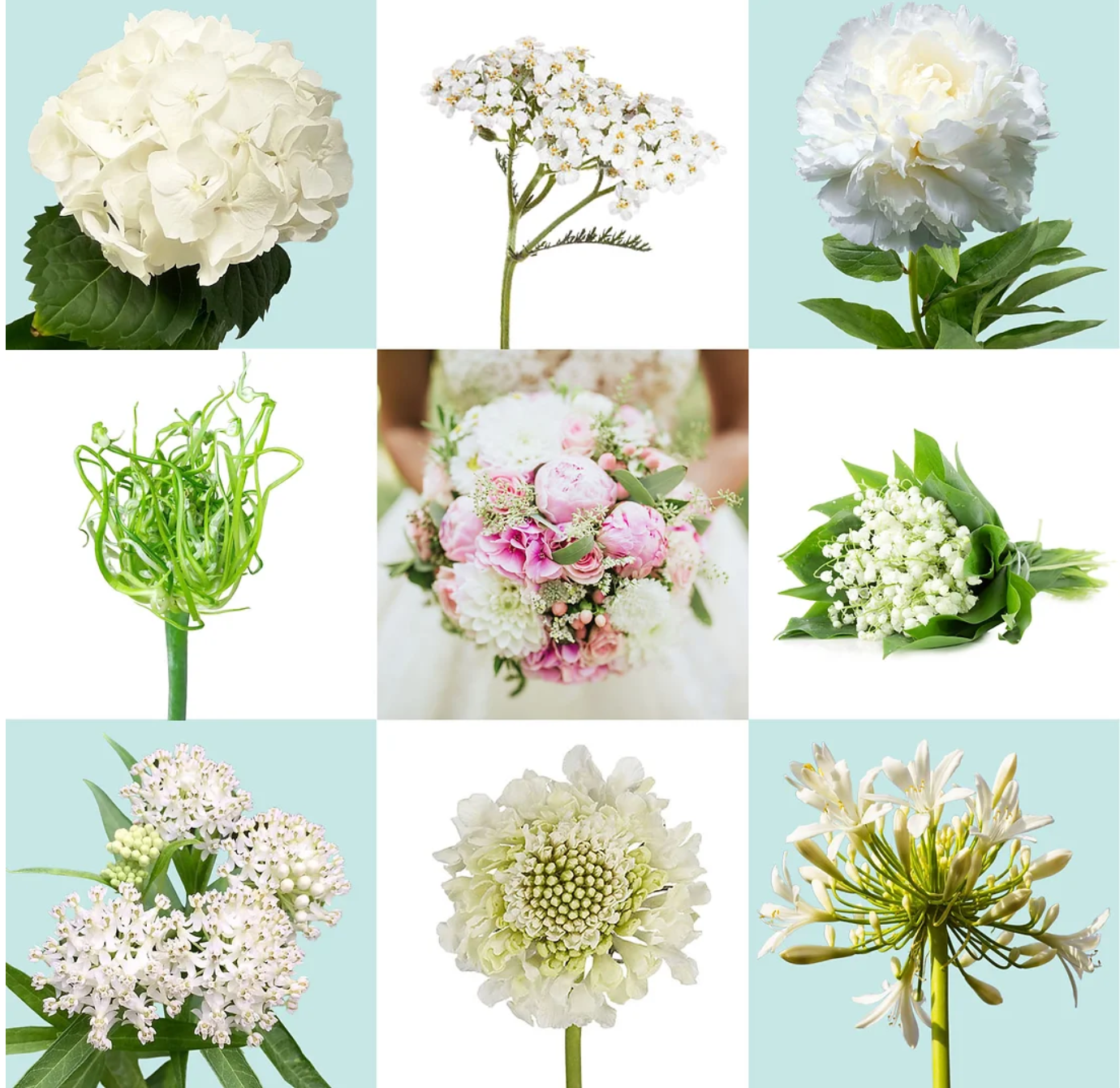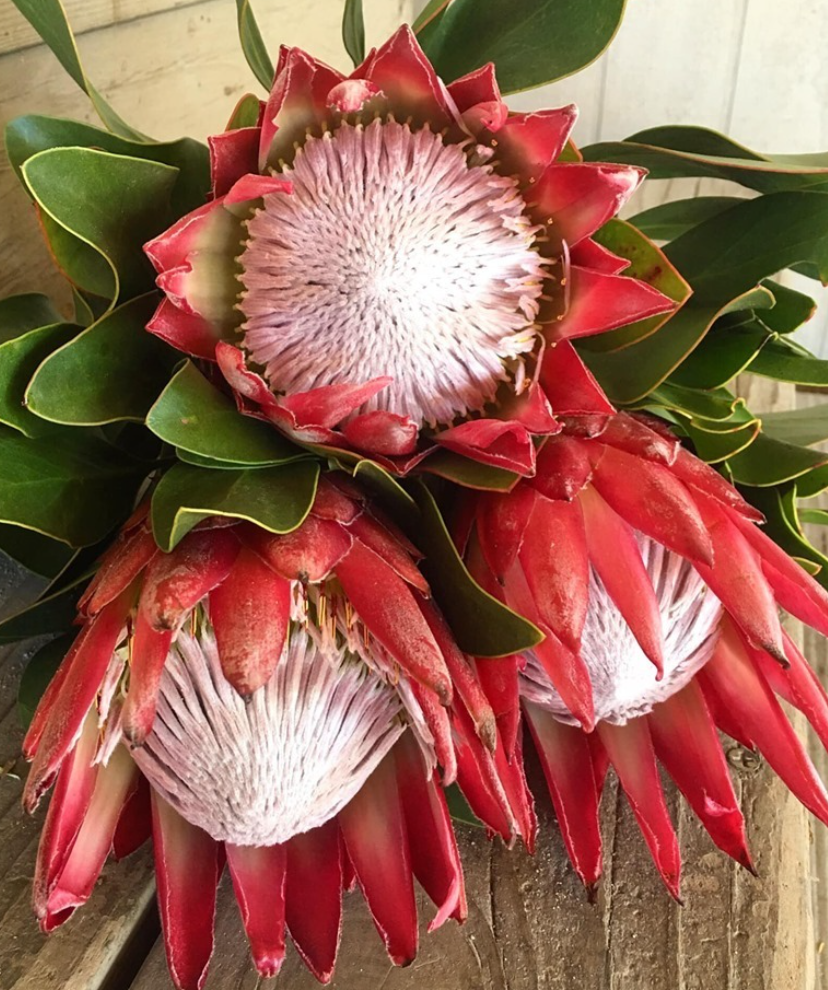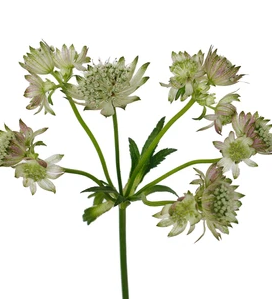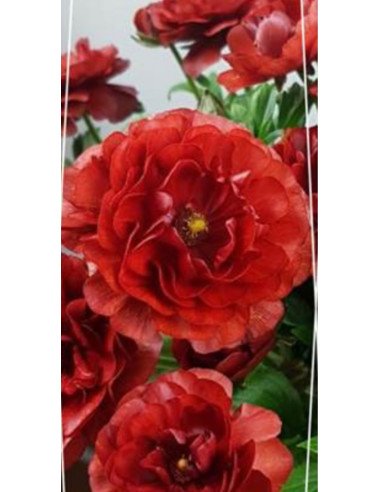Butterfly Ranunculus Red120 stems
- Distinctive Appearance: They differ from traditional ranunculus with their semi-double, slightly cupped blooms and a subtle shimmer to their petals, often described as a satin-like finish. This unique petal texture creates an airy, butterfly-like appearance, adding a whimsical touch to arrangements.
- Multiple Blooms per Stem: Unlike single-flowered ranunculus, butterfly ranunculus typically feature several blooms (3 to 7 or more, depending on the variety) on each stem. This translates to a fuller, more impactful look in arrangements, and potentially reduces the number of stems needed, making them a cost-effective option.
- Longer Vase Life: The petals possess a natural wax coating that contributes to a surprisingly durable bloom and extends their freshness. This translates to a vase life that can last up to two weeks with proper care.
- Color Variety: They come in a range of colors, including soft pastels, vibrant yellows, pinks, oranges, and deep purples. Some varieties like 'Butterfly Ariadne' boast soft pinks, while others like 'Terracotta' have burnt orange and copper tones. 'Eris' is praised for its rosy-peach color.
- Long, Sturdy Stems: Their robust, branching stems are ideal for floral design, offering both length and support for the blooms.
- Availability: Butterfly ranunculus are typically available from January through May in California. YEAR ROUND from South America farms.
This vibrant species of Ranunculus is single or double-flowering with the same delicate
papery textured petals that we admire in the more familiar plump Ranunculus variety.
Lively and happy-go-lucky anemone-like flowers have a brilliant presence, with immediate
color, volume and delicate texture.
FARM FRESH: Sun Valley Butterfly
Ranunculus are sustainably grown in hoop
houses in Northern & Southern California
under the coastal sunshine.
LASTING: A long-lasting vase life up to
14 days.
BUNCHES: 10+ stems, also available as
Consumer Bunches.
CARE & HANDLING: Upon arrival cut
stems and place into a clean container with
fresh, tepid water and fresh flower food
solution. (It is especially important to trim
stem ends if plant appears fatigued.)
Remove any foliage below the water. Keep
in cool location out of direct sunlight and
drafts. Replenish water as needed.
Pinch off individual expired blooms to
make room for new emerging flowers.
Flower Care Steps – From Arrival to Use
Step 1: Unpack and Inspect
-
Unpack Promptly: Open your boxes as soon as they arrive and remove any straps or outer packaging such as foam or paper. Take photos of the box labels on the ends of the boxes showing the product name, NOT the fedex labels. This is crucial in the event of any quality or other product issues.
-
Inspect Your Greens: Look over your products for any concerns before continuing with processing.
Step 2: Prepare the Containers
-
Use Clean Buckets: Choose buckets or containers that are clean and free from soap residue or bacteria. Rinse with warm water if needed.
-
Add Water: Fill each container with at least 4 inches of fresh, cool water. If flower food is available, follow the packet directions and mix it in.
Step 3: Trim and Place in Water
-
Remove Packaging: Take off any rubber bands or plastic sleeves protecting the flowers.
-
Remove Foliage Below the Waterline: Strip any leaves that will fall below the waterline to prevent bacterial growth.
-
Trim the Stems: Use clean, sharp floral shears or scissors to cut about 1 inch off each stem at a diagonal under cool running water. Avoid using household scissors, which can crush the stems and limit water absorption.
-
Place Immediately: After trimming, place the stems directly into the prepared water.
Step 4: Hydrate and Maintain
-
Hydration Time: Allow your flowers or greenery to hydrate for at least 4 hours — 8 to 12 hours is ideal.
-
Monitor Water Levels: Flowers drink heavily when they first arrive, so check water levels frequently and refill as needed.
-
Avoid Overcrowding: Ensure each container has enough space for the amount of flowers or greens you're processing. Overcrowding can lead to damaged stems and leaves.
-
Storage Conditions: Store hydrated greenery in a cool, shaded area away from direct sunlight, heat, or drafts until you're ready to use it.
Step 5: Refresh and Use
-
Change Water Daily: Refresh the water every 24 hours to keep your greens fresh and bacteria-free until use.





